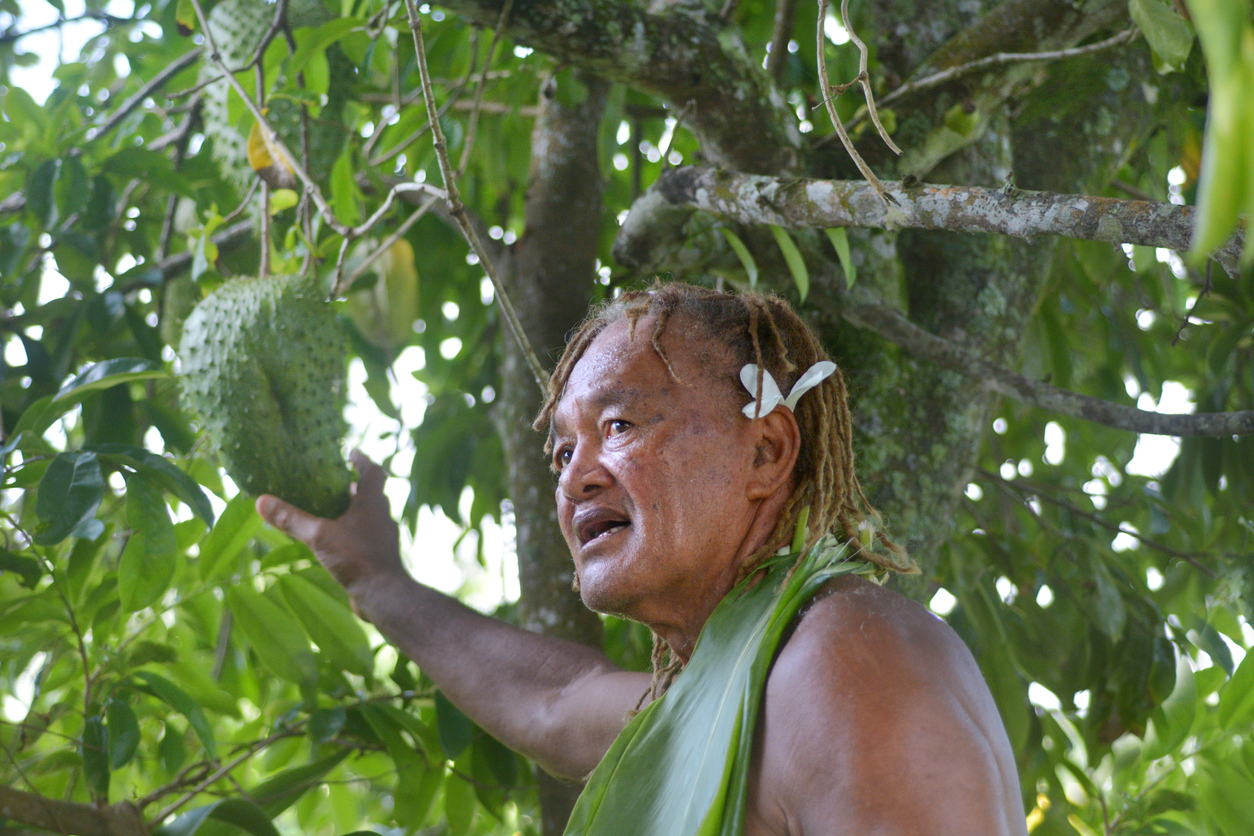Beyond Integrating Local Knowledge in Development Programming

In July of this year, USAID published a report titled, “Integrating Local Knowledge in Development Programming,” produced by the Knowledge Management and Organizational Learning team. I’ll begin by commending the Agency on this report, as it identifies some of the most important factors necessary for effective, meaningful development. For example, the report emphasizes the inclusion of local knowledge from the outset of any program/project, and it also recognizes the challenges that typically arise among the different actors in ensuring that local knowledge is included. The report also highlighted some very important aspects of development work that I hope will act as a catalyst to continue a much-needed conversation.
Those whom the report’s authors consulted identified key elements that led to the successful integration of local knowledge into development work. These included building trust and relationships; ensuring participatory processes; and integrating local and scientific knowledge. This isn’t new. As a development practitioner working in the 90s, all three of these elements were already themes of discussion within the development sector.[1] Even then in public health, integrating local knowledge with scientific knowledge was seen as the only effective way to connect with poor indigenous communities.
So what is new? I think what is particularly salient in this new report is the importance of local participation in all aspects. Allowing communities to identify and pursue their own development pathways is crucial for successful outcomes. Many of the organizations consulted were already integrating local knowledge into their work, but they also expressed the reality that these processes require more time than has typically been allocated. This critical temporal notion is still not widely valued by donors. As noted in the report, “These organizations underscored that merely respecting local knowledge is not enough; only when local actors drive the agenda, control resources, and hold decision-making power is the program truly community-led” (pg. 11). Another acknowledgement expressed by many was “the desire for development to move away from a project-based model of development and instead embrace longer-term investments in systemic change,” (pg. 23).
Advocating for systemic change raises serious implications for development work, and how an agency such as USAID can best respond. Donors – whether bilateral or multilateral – work within a particular global economic order that primarily benefits national or institutional self-interests of the most powerful nations. To change this global order will require a complete paradigm shift in how bilateral and multilateral institutions think about development. It will not happen with just “time and resources” as written in the report (pg. 24). But it is clear from the report (and from my own work) that if we are genuine in promoting effective, meaningful development, then more power and decision-making needs to be owned by local organizations.
It was encouraging to see the inclusion of a section on ethics and power dynamics. While more could have been said on this topic, the fact that it was included in the first place is a positive move. That section offers a rather cursory glance at ethics in the context of knowledge for development limiting the discussion to the power dynamics. I do not mean here to denigrate the importance of power dynamics, but unfortunately these are not the only ethical issues present here. Of particular note, a growing topic in the area of development ethics is epistemic injustice.
Epistemic derives from the Greek work episteme which means knowledge. Epistemic injustice can be described as a form of injustice reflected in the way knowledge is produced, used and credited. There is an increasing awareness that the persistence of certain types of knowledge such as a worldview deriving only from a Global North perspective can lead to harm and injustice. Thinking about epistemic injustice in this context enables us to analyze what the contributing factors are that allow some forms of knowledge to be weighed by decision makers as more important (or more authoritative) over others. Our analyses must embrace the structural issues which perpetuate collective understandings of paradigm-shifting concepts such as sustainable development, for one example. Any concepts which do not permit more nuanced understandings within a particular culture of what needs to be done to prevent or mitigate these epistemic injustices need to be carefully scrutinized. The epistemology of knowledge production emphasizes the normative role, “seeking not only to describe our current social practices of knowledge production, but also to understand how we ought to know and how we can improve our knowledge practices.”[2]
The USAID report poses four questions that offer a strong starting point: (1) Which knowledge is valid? (2) Who holds the resources? (3) How do we avoid extractive practices when working with local knowledge? And (4) How do we address biases? Further questions remain unasked, for example: (5) Whose knowledge is valued more and why? (6) Why do donors still hold and control the resources? (7) What guidelines/rules/regulations need to be put in place to avoid unethical extractive practices of handling local knowledge? And (8) how do we address epistemic injustice, biases, stereotypes, and assumptions (that are often wrong)?
The report mentioned a comprehensive literature review, but unfortunately it was not included in the USAID document. That made it impossible for me to establish the veracity of a concern that I have, i.e., that the literature review undertaken for the report completely ignored theoretical writings on the topic of epistemic justice. This omission is disappointing, since I believe that to advocate for any framing of any development issue, such framing must analyze both theory and practice. While academics are often blamed for keeping to themselves and being disconnected from the practitioner’s reality, I think this report relies too heavily on practice in lieu of theory, thereby shortchanging a rich, full, and comprehensive analysis and discussion on the topic.
The report’s section on addressing biases is generally good; it recognizes that how one is socially situated will influence one’s thoughts, attitudes, and beliefs. I refer to Sandra Harding, who says: “Knowledge claims are always socially situated and the failure by dominant groups critically and systematically to interrogate their advantaged social situation and the effect of such advantages on their beliefs leaves their social situation a scientifically and epistemologically disadvantaged one for generating knowledge.”[3]
Each of us has a responsibility to reflect upon our own individual biases, prejudices, and attitudes, and to constantly enter into an introspective process challenging and questioning them. This can be done through dialogical processes within development teams. Promoting diversity in teams and approaches are excellent ways to counter the presence of biases – but these are not enough. As well as this, development practitioners and organizations need to foster epistemic virtues such as humility, curiosity and open-mindedness, and discourage epistemic vices such as arrogance, and close-mindedness.[4]
It was good to read the following: “IFRC[5] explained that while it is important to value and prioritize local knowledge, not everything that local actors say is inherently good or inclusive. Local knowledge is not free from prejudice and does not always align with progress toward equality.” This is a very important assertion and should be emphasized more. It is well known that in many cultures, patriarchy and resistance (and often violence) towards minority communities such as the LGBTQI+ community is so entrenched that relying on local knowledge without a critical component will only perpetuate these harmful ideologies.
One thing that is missing from the report is how USAID intends to respond to some of the challenges highlighted in the report. How does USAID intend to unlearn colonial legacies, to integrate local knowledge which promotes justice, or to hand over resources to local communities? In other words, how does USAID intend to relinquish their power? This shift in power is what localization means, and it will demand individual and systemic change. USAID still needs to persuade the reader of their report that they are up to this.
[1] Robert Chambers, Whose Reality Counts? Putting the First Last, Practical Action Publishing, June 1, 1997;
[2] Grasswick, Heidi. “Feminist Social Epistemology”, The Stanford Encyclopedia of Philosophy (Spring 2013 Edition), Edward N. Zalta (ed.), URL = <http://plato.stanford.edu/archives/spr2013/entries/feminist-social-epistemology/>.
[3] Harding, Sandra G. The Feminist Standpoint Theory Reader: Intellectual and Political Controversies. New York: Routledge, 2004. Print.
[4] Fricker, Miranda. Epistemic Injustice: Power and the Ethics of Knowing, Oxford: Oxford University Press, 2007; Medina, Jose. The Epistemology of Resistance: Gender and Racial Oppression, Epistemic Injustice, and Resistant Imaginations. Oxford: Oxford University Press, 2013.
[5] International Federation of Red Cross and Red Crescent Societies


